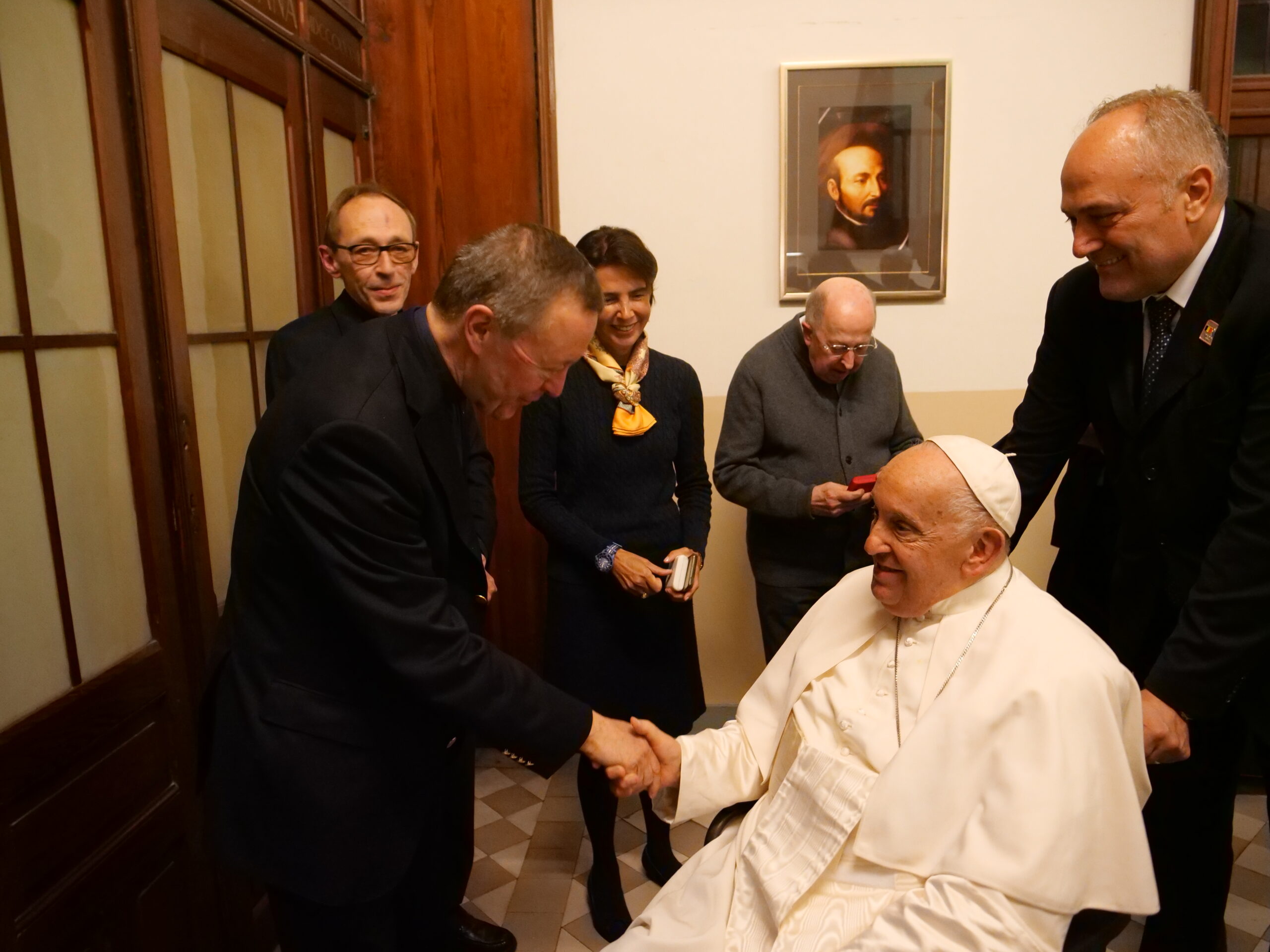During his official visit to Belgium in September, Pope Francis did something none of his many illustrious predecessors have ever done: he visited a little-known library in Etterbeek called Biblioteca Bollandiana, and blessed its collection.
The library hosts half a million books, over one thousand periodicals and a similar number of manuscripts. The Society of Bollandists, Belgium’s oldest learned society, has amassed the collection over four centuries for its mission of critical hagiography work: the study of the lives of saints.
“It was the first ever papal visit to the Bollandists in 400 years,” notes Robert Godding, director of the society.
The Bollandists’ work covers several academic disciplines: theology, hagiography, linguistics and history, revealing insights not just on saints, but on topics that are of interest to a wide variety of experts, including anthropologists and political scientists. Their scholarship is international, but their roots very Belgian.
These date back to 1607 when Heribert Rosweyde, a Jesuit in Antwerp, decided to publish early texts on the lives of saints. Some decades later, Jean Bolland (hence the name), a fellow Jesuit, continued Rosweyde’s ambitious project.
300 years of quiet study
More than three centuries of diligent research later, the most authoritative collection of works on saints was published in 1940: the 67-volume Acta Sanctorum, with detailed studies of all saints in Eastern and Western Christianity.
Almost six decades previously, the journal Analecta Bollandiana was launched. Though initially seen as a complement to the Acta Sanctorum series, the journal soon acquired a life of its own, with articles by Bollandists and other scholars. The publication is the only academic journal exclusively dedicated to the study of Latin, Greek, ancient Eastern and modern hagiography.
Over the centuries, the Bollandists have weathered excommunication by the Spanish Inquisition, revolutionary turmoil, pillage of the original library, expulsion and 40 years of total suppression. Their travails and travels have taken them from Antwerp to the Coudenberg monastery in Brussels, to Tongerlo and back to Brussels.
Near the end of the 19th century, a new Society of Bollandists was formed under the patronage of the Belgian government. In 1905, they moved the library to a building in the Romanesque Saint Michel College complex near Square Montgomery in Etterbeek where it still stands today (some visitors compare the imposing architecture to Harry Potter's Hogwarts school). Until 1987, only Jesuits could be Bollandists, but now lay members are also eligible.
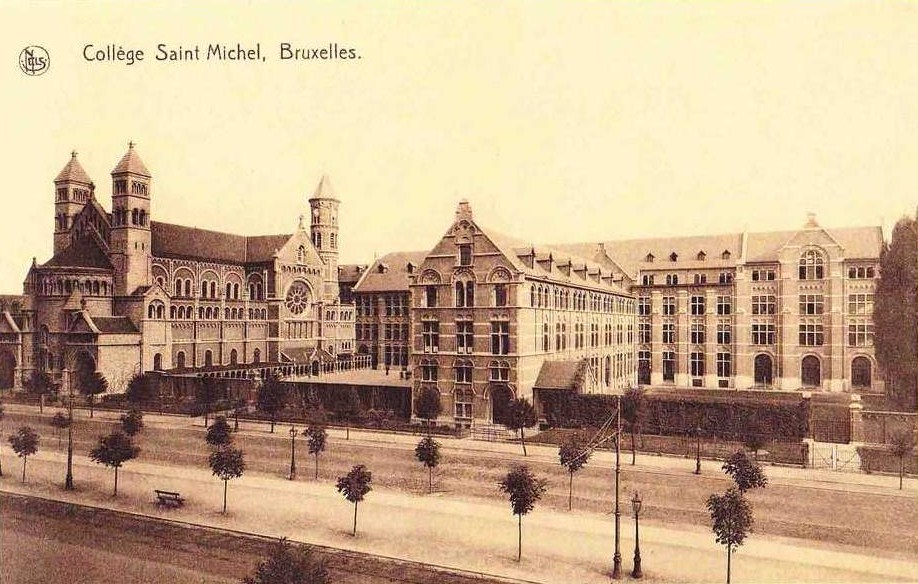
The Saint Michel college around 1900.
Despite their lengthy physical presence in Belgium, the Bollandists and their independent centre of critical research are largely unknown in the country, and even among the wider Jesuit community. One of the few physical references to their existence is the Rue des Bollandistes, which is near the library.
It was reliable funding from the church that allowed them to continue their work in peaceful anonymity, which was welcome and conducive to scholarship.
Father Robert began working with the Bollandists in 1990, and he remembers the dictum at the time: “A secret life is a happy life.”
“Bollandists have always cultivated discretion, confident that the quality of their work was the best guarantee for the institution’s reputation,” he explains. “There was no need to make a big noise.”
Additionally, the library is only available to visitors undertaking fundamental research, and not to the general public. “If you are researching hagiography, there is no doubt this is the best place.”
Today, however, there is a growing recognition that the society, which has had only 70 Bollandists throughout its entire history, must modernise and become more proactive.
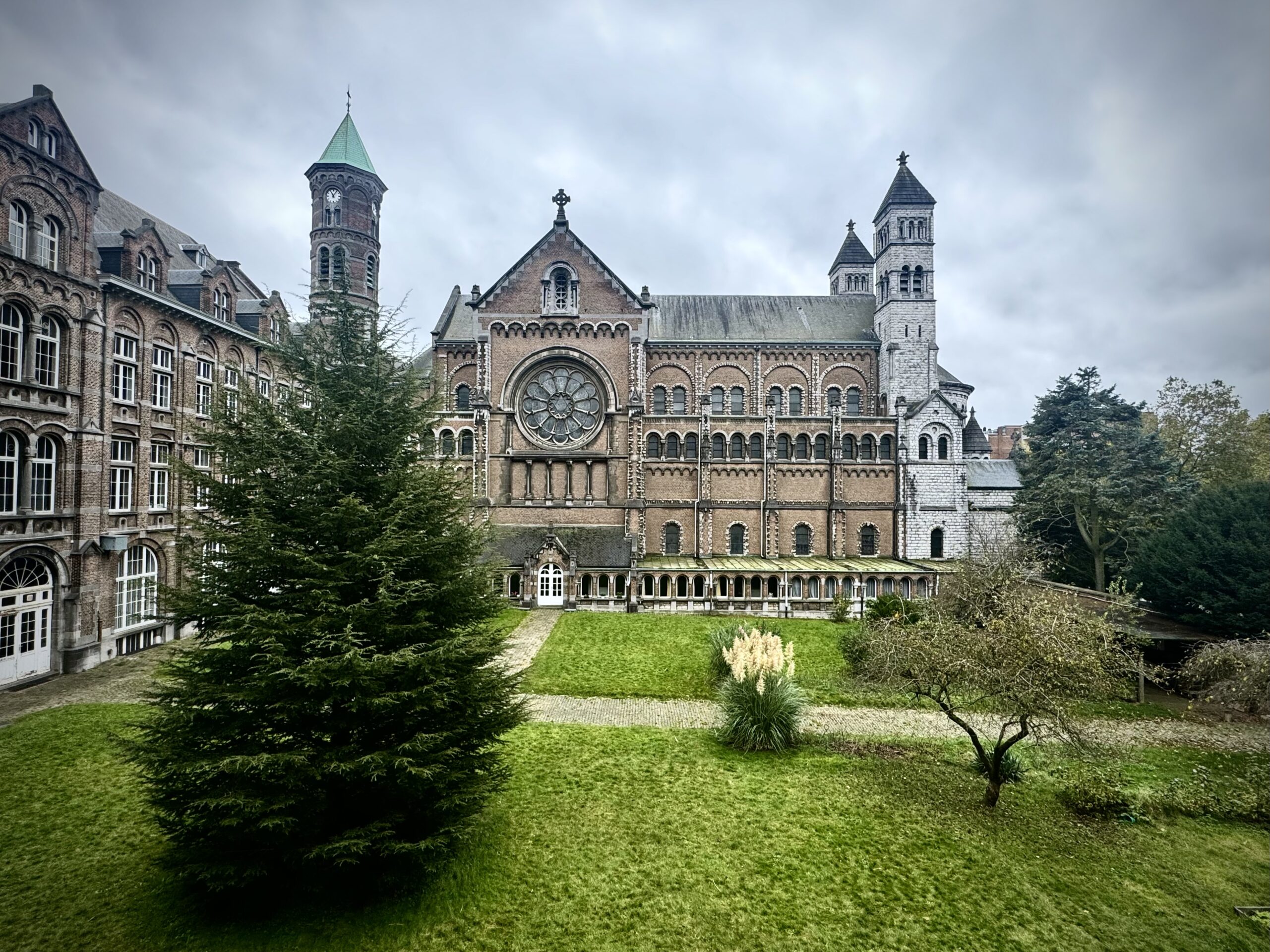
The Saint-Michel college where the Bollandists are based.
Updating Bollandists
Several factors are driving this understanding. The first is money: the society receives no public funding and church finances are now under pressure from other demands.
American Jesuit Joseph Koczera, who teaches in Rome, has been collaborating with the Bollandists on various projects over the past year. On funding, he says the challenge, “is always to persuade people that there is something worth supporting and to connect our needs with the interests of potential benefactors.”
The second factor is that the Bollandists’ research has traditionally been medieval and Eurocentric. Now, they are extending their focus to modern and contemporary saints canonised over the last 500 years, including saints in diverse parts of the world, such as Korea, Uganda and Latin America.
The inclusion of modern saints helps shape the vision of the society’s relevance to the future, which must also adapt to 21st century realities. For example, all donations to the Bollandist Fund are channelled through the King Baudouin Foundation, which enables donors to support the society in a tax-efficient way.
The third factor driving imminent change is the society’s desire to share the Bollandists’ research with a wider audience. This is already being made possible by the growing use of electronic databases that allow access to the library’s contents to researchers all over the world.
Le Fonds Baillet Latour, a Belgian non-profit organisation, recently financed a €538,000 project, now successfully completed with the Université catholique de Louvain (UCLouvain), to digitally catalogue 22,000 of the society’s books published before 1800. However, some two-thirds of the library are still catalogued on specialised card indexes.
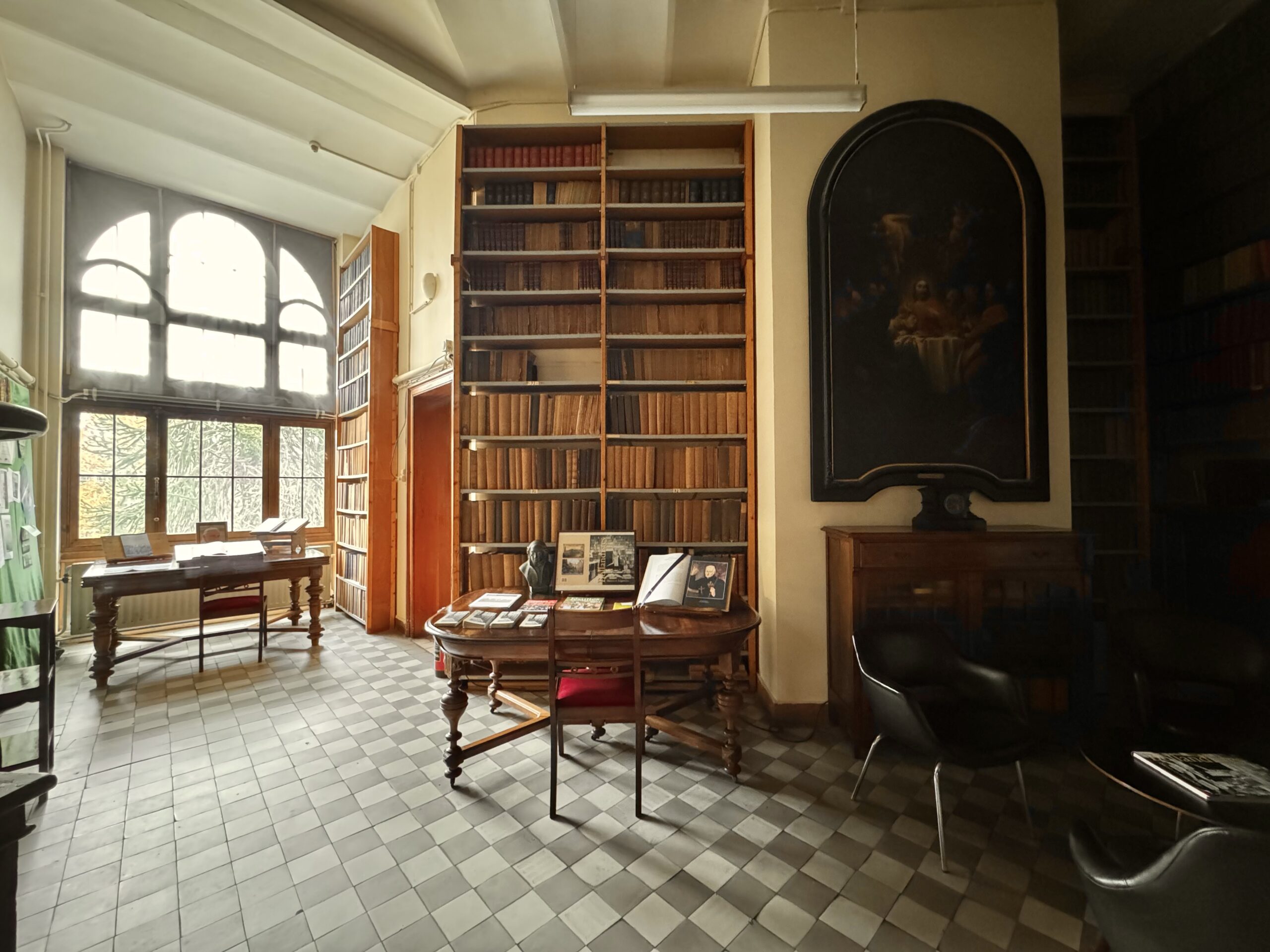
The library.
Advancing the mission
Moves to make the Bollandists more contemporary began in 2017 with the appointment of Irini de Saint Sernin, a multilingual Greek Orthodox mother of three, to the new post of external relations and development manager. From the outset, she was clear about her role.
“Advancement. How do I advance the Bollandists’ mission and cause?” she explains. “We are behind every book on saints for the wider public, but they don’t see that. Without us to collect the documents, the authors could not do their work.”
Saint Sernin has raised the Bollandists’ visibility by introducing a Facebook page that now has 8,500 followers, overseeing the development of a new website, commissioning articles, speaking regularly to many different audiences about the society’s work and contacting possible benefactors. Wider awareness of the Bollandists would also come if UNESCO grants the society’s request for Memory of the World status for the Acta Sanctorum and the archives used to compile them.
Related News
- King Baudouin's beatification begins at Vatican
- 'Our shame and humiliation': Catholic Church says it failed its own victims
- 'Magnificent' or 'empty words': Mixed feelings about Pope's visit to Belgium
Father Joseph asks whether the Bollandists could capitalise more from their presence in Brussels – the heart of the European Union – in their search for a broader audience. He names six saints considered patrons of Europe: Saint Benedict of Nursia, Saint Bridget of Sweden, Saint Catherine of Siena, Saint Teresa Benedicta of the Cross (Edith Stein) and Saints Cyril and Methodius, apostles to the Slavic nations.
“We have this diversity of figures. What can they offer today in a contemporary context marked by pluralism, secularisation and diversity? Is there something worth sharing and talking about their examples? I think people are looking for models which saints are meant to be,” he explains.
When Arturo Sosa, the Superior General of the Society of Jesus, visited Belgium in September, he made the connection between the society and the EU, emphasising the importance of the European project and urging his audience to recognise and appreciate the EU’s role as a beacon of peace, solidarity and co-responsibility, not just among its members, but for the entire world.
Remaining relevant
As the Bollandists widen their horizons, Father Joseph emphasises they have always embraced innovation.
“The Bollandists have had two important moments in their history. The first, in the 17th century, was the Acta Sanctorum with the launch of its highly exhaustive critical study of the saints. The second was in the late 19th century when they started a journal to remain at the cutting edge and engage with scholars in a more effective way. Now, in the 21st century, is another of those moments with a call to adapt and remain at the forefront of what we are doing.”
He sees the Pope’s recent visit as hugely significant. From the vast network of Catholic activities in Belgium, the only apostolic work of the Jesuits he visited was the Bollandists’ library. “I think it shows that he cares about it personally, recognises its importance and wants it to continue,” Father Joseph says.
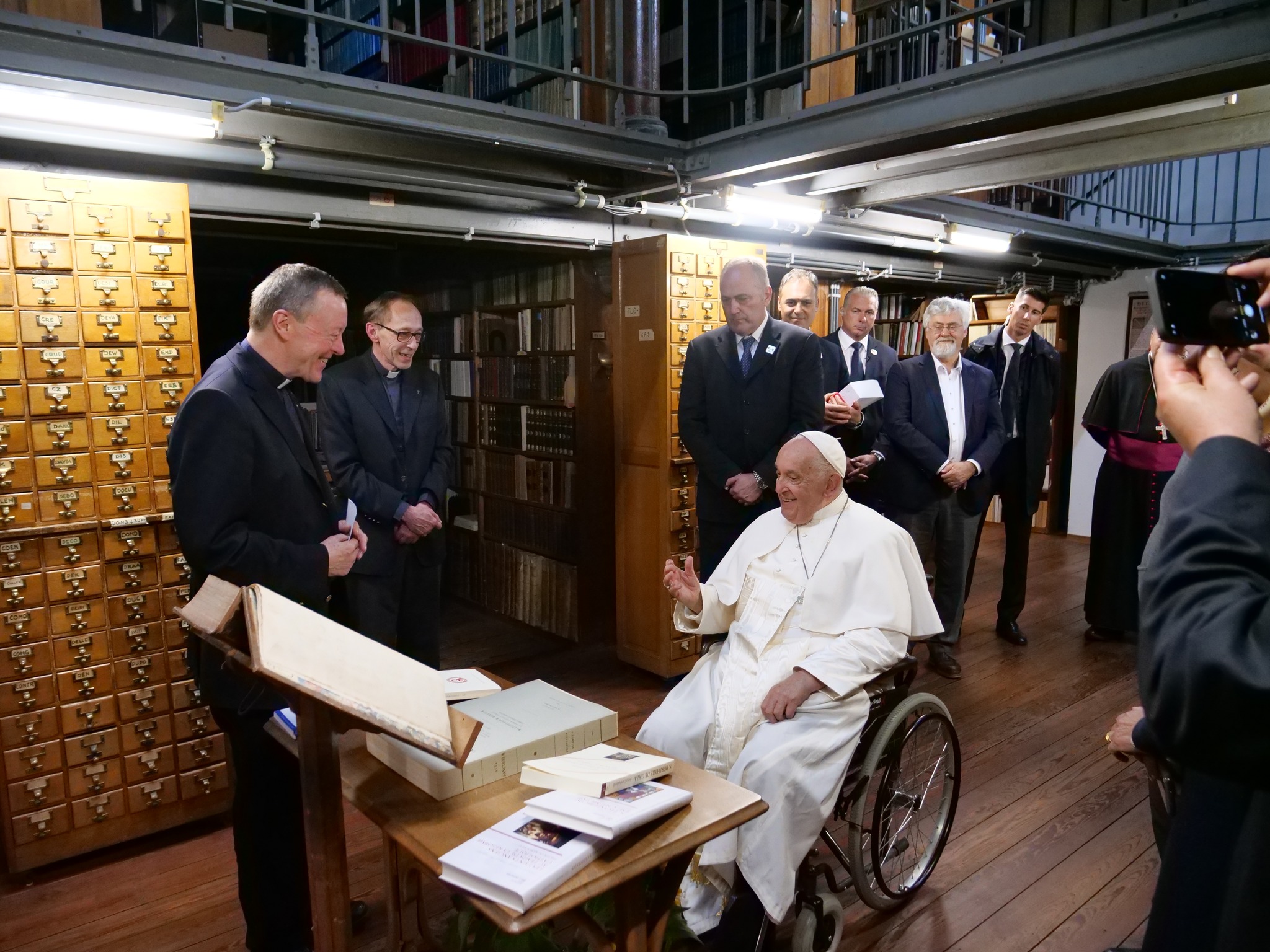
The Pope during his visit.

